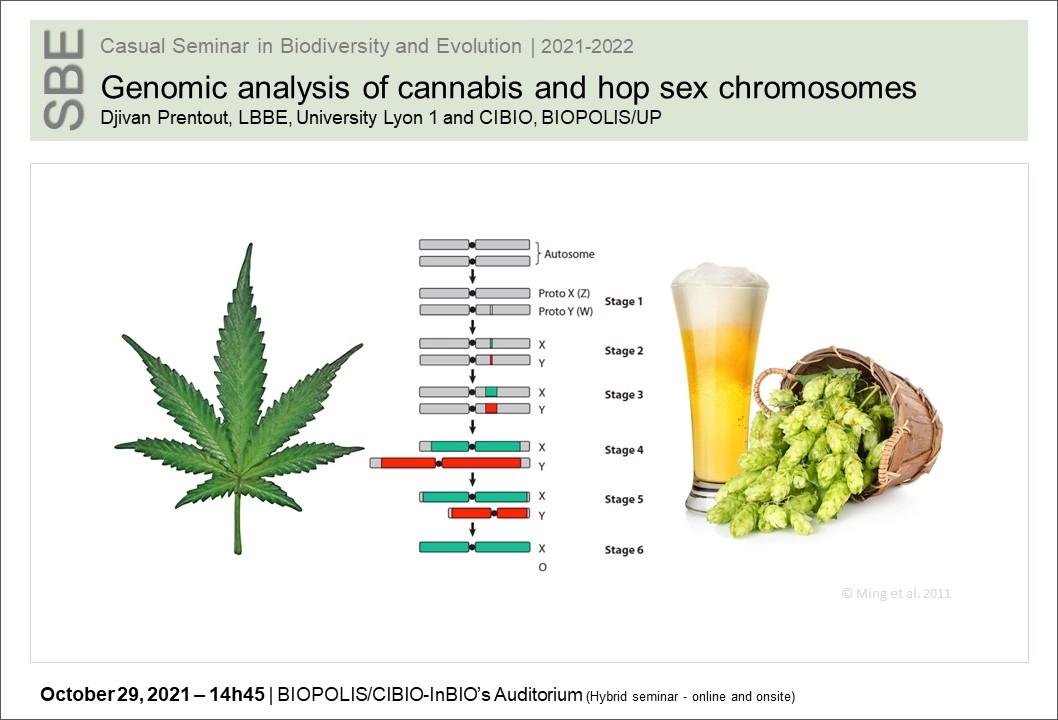Genomic analysis of cannabis and hop sex chromosomes
29 Oct 2021 - Djivan Prentout, LBBE, University Lyon 1 and CIBIO, BIOPOLIS/UP | 14h45

CASUAL SEMINAR IN BIODIVERSITY AND EVOLUTION
Cannabis sativa and Humulus lupulus are two economically important plants. Production of C. sativa with high THC content is becoming legal in a growing number of countries. H. lupulus-derived material used in beer production is increasing worldwide. Both plants are dioecious with male and female individuals and a XY sex determination system. Only females are of economic value but the sex of the plants becomes visible only after flowering. Methods for early sexing, e.g using sex-linked molecular markers, would help greatly reducing the cost of THC and other cannabinoids production and also increase the quality process in producing new varieties of hop. Universal makers for sexing are currently missing due to lack of sequences for the C. sativa and H. lupulus sex chromosomes. Stuyding the XY chromosomes of these two plants is also interesting, from a fundamental research perspective, because dioecy is ancient in cannabaceae and these sex chromosomes are potentially old and diverged, although this remains to be demonstrated. Old sex chromosomes are indeed rare in plants and the late stages of sex chromosome evolution in plants remain poorly understood. Here we RNA-sequenced a cross in both C. sativa and H. lupulus and used SEX-DETector, a tool to identify sex-linked genes based on a probabilistic framework, which we have previously developed. We found several hundreds of sex-linked genes in each plant, and discovered that sex chromosomes are homologous between C. sativa and H. lupulus. Our results further indicate that this system is the oldest and most diverged ever documented in plants, with a strongly degenerated Y chromosome. We also developed several molecular markers that are currently being tested on different C. sativa cultivars. Our work thus provide both important insights on sex chromosome evolution in plants and also useful resources for two important crops.
Djivan Prentout is a 4th year PhD student working on the evolution of plant sex chromosomes. He is supervised by Jos Käfer (LBBE, CNRS / Univ. Lyon 1) and Gabriel Marais (CIBIO, BIOPOLIS/ Univ. Porto).
[Host: Gabriel Marais, Plant Evolution - PlantEvol]
Djivan Prentout is a 4th year PhD student working on the evolution of plant sex chromosomes. He is supervised by Jos Käfer (LBBE, CNRS / Univ. Lyon 1) and Gabriel Marais (CIBIO, BIOPOLIS/ Univ. Porto).
[Host: Gabriel Marais, Plant Evolution - PlantEvol]